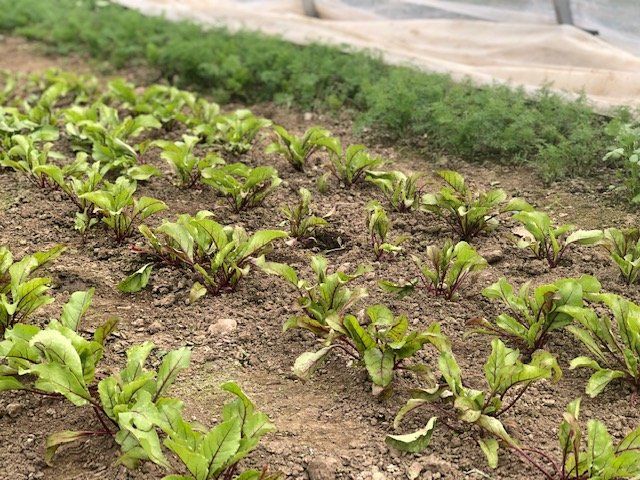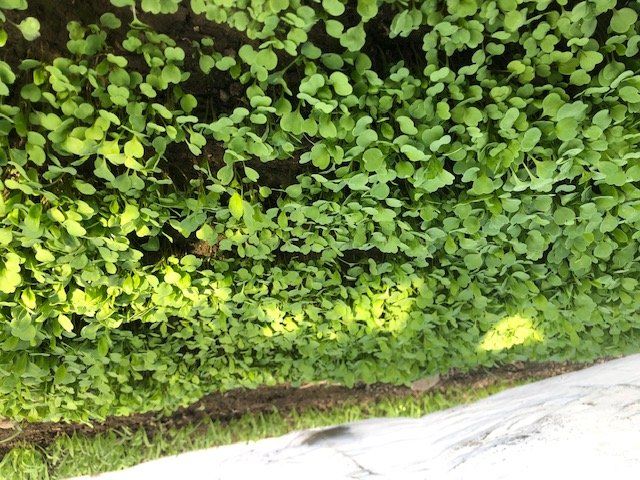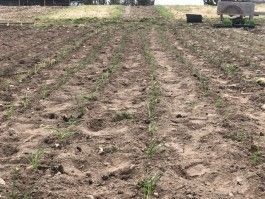Good afternoon veggie lovers!
We have now planted all of the onions, leeks and shallots we’ll be growing on the farm this season, approximately 6,000 of them. Alliums are a cooking staple and we aim to supply them right through to Christmas for our members. They are also a lot of work to keep weeded, and to harvest, cure, and clean so we’ve stopped selling them at market and to restaurants. You folks are special.
We also got in our first sugar snap peas! They won’t be ready until some point in June, but good things are worth the wait. Cucumbers, zucchini, tomatoes and peppers go into our heated greenhouses on Monday, after a short delay. I’m already dreaming of summer food.
I wanted to touch base with you all about packaging. We would prefer to use less plastic. There are a few problems in achieving this.
1. In light of COVID, we are concerned about packing shares loose into bins that then get touched by customers, then are reused on the farm for new customers.
2. We’ve moved to packing shares into single use bags for this reason.
3. Thus far we’ve used single use plastic bags. There have been challenges in sourcing paper bags because New York has recently outlawed plastic and somehow managed to tie up the North American paper bag supply. Paper bags also have some inherent structural weaknesses when they become moist as they are likely to do when being stuffed with vegetables.
4. We’ve managed to secure some paper bags and will trial them.
5. Bear with us as we sort this out. If anyone knows of an economical, functional, biodegradable bag option please let me know!
6. Also, even if we are able to use paper bags to pack the share into, our baby greens will still be in smaller plastic shares. Unfortunately, baby greens wilt incredibly quickly as they are very delicate and do not do well in paper. While, again, we would prefer not to use plastic, we also cannot stand the idea of our vegetables arriving to you in poor condition and becoming waste.
7. Thank you for your understanding!
Garden Like a Professional:
As promised last week, I’m going to give a few tips on succession planting.
For our customers who also have gardens, the biggest complaint I hear is that folks are overloaded with something in June, and then completely out of it before the end of the month. Here is where yield planning and succession planting come in.
Before planting, think about how much you want to eat, use online resources like this one:
https://harvesttotable.com/vegetable_crop_yields_plants_p/
You can also use this very brief planting frequency overview, to plan your successions:
Baby greens, head lettuce, radish, cilantro, dill, scallions: plant every 14 days
Beans: plant every 14 days – 21 days
Beets and carrots, broccoli, cauliflower, peas: Plant once for spring (May), once for fall (July)
Zucchini, cucumber, basil: Plant monthly (May after frost free, June, July)
Squash, parsnip, fall cabbage, brussels sprouts, melons, tomato, pepper, eggplant: Plant once
It’s fun to plant seeds, but so much more satisfying to plant the right things, at the right times, in the right amounts.
Next week I'll share some plant by information so that you know the last date you can put something out into the garden in order for it to mature before winter.
That’s it for now, happy eating until next time!
Tamara




